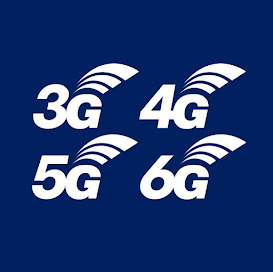
The GSM Association (GSMA) has came to the realization that GPRS roaming based on bilateral relationships between individual GPRS operators is incredibly complex and expensive to maintain, in particular if the number of roaming partners is high. In fact, each operator will have to have N(N - 1) dedicated links to other operators (given that N is the global numbers of operators for which roaming should be supported). The GSMA has therefore recommended the use of a GPRS Roaming eXchange (GRX) for the Inter-PLMN GPRS roaming scenario.
The GRX is built on a private or public IP backbone and transports GPRS roaming traffic via the GTP between the visited and the home PLMN (Figure above). A GRX service provider has a network consisting of a set of routers and the links connecting to the GPRS networks. Moreover, the GRX network will have links connecting to other GRX nodes to support GRX peering between networks.
The GRX service provider acts as a hub, therefore allowing a GPRS operator to interconnect with each roaming partner without the need for any dedicated connections. This allows faster implementation of new roaming relations, faster time to market for new operators, and better scalability since an operator can start with low-capacity connections to the GRX and upgrade them depending on the bandwidth and quality requirements of the traffic. Other benefits of GRX are as follows:
Support of QoS: This aspect that will be very important for the GPRS services and, in particular, for the transition to 3G systems.
Security: The interconnection between the home operator and the visited operator uses the private GRX networks, hence does not require the overhead of maintaining expensive IPSEC tunnels over the public Internet.
DNS support: Through GRX it is possible to support a worldwide ".gprs" DNS root, where the various GRX operators will collaborate in managing the root and each operator's DNS servers will be connected to such roots to provide translation of DNS names specific to one operator.
In conclusion, GRX is introduced for GPRS roaming to facilitate the network operators for the interconnection between networks to support roaming and will play a very important role for the transition to third-generation systems.
In the LTE World Summit, Alex Sinclair, Chief Technology Officer, GSMA mentioned about the important role GRX will play in the LTE networks. The figure below are his views on GRX.






